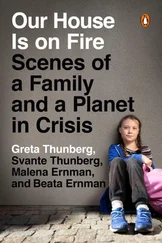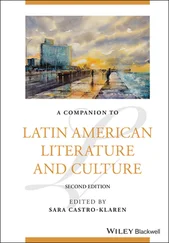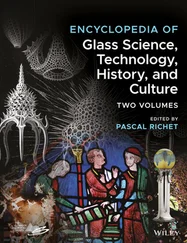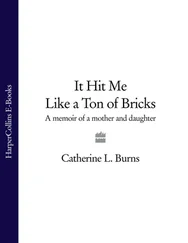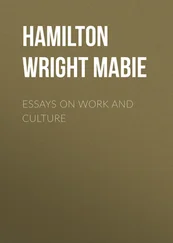This is the story my grandparents told me, and like most family legends it’s largely true but plays fast and loose with the details. On a recent trip to visit family in Jackson, my great-uncle Arch—Mamaw’s brother-in-law and the last of that generation of Jacksonians—introduced me to Bonnie South, a woman who’d spent all of her eighty-four years a hundred yards from Mamaw’s childhood home. Until Mamaw left for Ohio, Bonnie South was her best friend. And by Bonnie South’s reckoning, Mamaw and Papaw’s departure involved a bit more scandal than any of us realized.
In 1946, Bonnie South and Papaw were lovers. I’m not sure what this meant in Jackson at the time—whether they were preparing for an engagement or just passing the time together. Bonnie had little to say of Papaw besides the fact that he was “very handsome.” The only other thing Bonnie South recalled was that, at some point in 1946, Papaw cheated on Bonnie with her best friend—Mamaw. Mamaw was thirteen and Papaw sixteen, but the affair produced a pregnancy. And that pregnancy added a number of pressures that made right now the time to leave Jackson: my intimidating, grizzled war-veteran great-grandfather; the Blanton Brothers, who had already earned a reputation for defending Mamaw’s honor; and an interconnected group of gun-toting hillbillies who immediately knew all about Bonnie Blanton’s pregnancy. Most important, Bonnie and Jim Vance would soon have another mouth to feed before they’d gotten used to feeding themselves. Mamaw and Papaw left abruptly for Dayton, Ohio, where they lived briefly before settling permanently in Middletown.
In later years, Mamaw sometimes spoke of a daughter who died in infancy, and she led us all to believe that the daughter was born sometime after Uncle Jimmy, Mamaw and Papaw’s eldest child. Mamaw suffered eight miscarriages in the decade between Uncle Jimmy’s birth and my mother’s. But recently my sister discovered a birth certificate for “Infant” Vance, the aunt I never knew, who died so young that her birth certificate also lists her date of death. The baby who brought my grandparents to Ohio didn’t survive her first week. On that birth certificate, the baby’s brokenhearted mother lied about her age: Only fourteen at the time and with a seventeen-year-old husband, she couldn’t tell the truth, lest they ship her back to Jackson or send Papaw to jail.
Mamaw’s first foray into adulthood ended in tragedy. Today I often wonder: Without the baby, would she ever have left Jackson? Would she have run off with Jim Vance to foreign territory? Mamaw’s entire life—and the trajectory of our family—may have changed for a baby who lived only six days.
Whatever mix of economic opportunity and family necessity catapulted my grandparents to Ohio, they were there, and there was no going back. So Papaw found a job at Armco, a large steel company that aggressively recruited in eastern Kentucky coal country. Armco representatives would descend on towns like Jackson and promise (truthfully) a better life for those willing to move north and work in the mills. A special policy encouraged wholesale migration: Applicants with a family member working at Armco would move to the top of the employment list. Armco didn’t just hire the young men of Appalachian Kentucky; they actively encouraged those men to bring their extended families.
A number of industrial firms employed a similar strategy, and it appears to have worked. During that era, there were many Jacksons and many Middletowns. Researchers have documented two major waves of migration from Appalachia to the industrial powerhouse economies in the Midwest. The first happened after World War I, when returning veterans found it nearly impossible to find work in the not-yet-industrialized mountains of Kentucky, West Virginia, and Tennessee. It ended as the Great Depression hit Northern economies hard. [4] Phillip J. Obermiller, Thomas E. Wagner, and E. Bruce Tucker, Appalachian Odyssey: Historical Perspectives on the Great Migration, (Westport, CT: Praeger, 2000), Chapter 1.
My grandparents were part of the second wave, composed of returning veterans and the rapidly rising number of young adults in 1940s and ’50s Appalachia. [5] Ibid.; Khan, “The Scots-Irish as Indigenous People.”
As the economies of Kentucky and West Virginia lagged behind those of their neighbors, the mountains had only two products that the industrial economies of the North needed: coal and hill people. And Appalachia exported a lot of both.
Precise numbers are tough to pin down because studies typically measure “net out-migration”—as in the total number of people who left minus the number of people who came in. Many families constantly traveled back and forth, which skews the data. But it is certain that many millions of people traveled along the “hillbilly highway”—a metaphorical term that captured the opinion of Northerners who saw their cities and towns flooded with people like my grandparents. The scale of the migration was staggering. In the 1950s, thirteen of every one hundred Kentucky residents migrated out of the state. Some areas saw even greater emigration: Harlan County, for example, which was brought to fame in an Academy Award–winning documentary about coal strikes, lost 30 percent of its population to migration. In 1960, of Ohio’s ten million residents, one million were born in Kentucky, West Virginia, or Tennessee. This doesn’t count the large number of migrants from elsewhere in the southern Appalachian Mountains; nor does it include the children or grandchildren of migrants who were hill people to the core. There were undoubtedly many of these children and grandchildren, as hillbillies tended to have much higher birthrates than the native population. [6] Jack Temple Kirby, “The Southern Exodus, 1910–1960: A Primer for Historians,” The Journal of Southern History 49, no. 4 (November 1983), 585–600.
In short, my grandparents’ experience was extremely common. Significant parts of an entire region picked up shop and moved north. Need more proof? Hop on a northbound highway in Kentucky or Tennessee the day after Thanksgiving or Christmas, and virtually every license plate you see comes from Ohio, Indiana, or Michigan—cars full of hillbilly transplants returning home for the holidays.
Mamaw’s family participated in the migratory flow with gusto. Of her seven siblings, Pet, Paul, and Gary moved to Indiana and worked in construction. Each owned a successful business and earned considerable wealth in the process. Rose, Betty, Teaberry, and David stayed behind. All of them struggled financially, though everyone but David managed a life of relative comfort by the standards of their community. The four who left died on a significantly higher rung of the socioeconomic ladder than the four who stayed. As Papaw knew when he was a young man, the best way up for the hillbilly was out.
It was probably uncommon for my grandparents to be alone in their new city. But if Mamaw and Papaw were isolated from their family, they were hardly segregated from Middletown’s broader population. Most of the city’s inhabitants had moved there for work in the new industrial plants, and most of these new workers were from Appalachia. The family-based hiring practices of the major industrial firms [7] Ibid.
had their desired effect, and the results were predictable. All over the industrial Midwest, new communities of Appalachian transplants and their families sprang up, virtually out of nowhere. As one study noted, “Migration did not so much destroy neighborhoods and families as transport them.” [8] Ibid., 598.
In 1950s Middletown, my grandparents found themselves in a situation both new and familiar. New because they were, for the first time, cut off from the extended Appalachian support network to which they were accustomed; familiar because they were still surrounded by hillbillies.
Читать дальше
Конец ознакомительного отрывка
Купить книгу
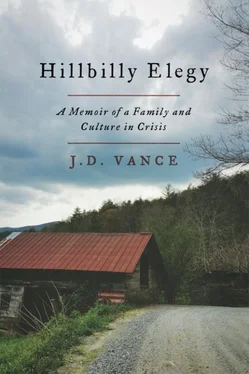
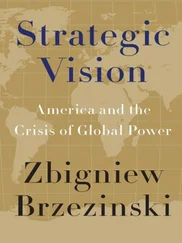

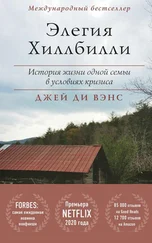
![Джей Вэнс - Элегия Хиллбилли [litres]](/books/399146/dzhej-vens-elegiya-hillbilli-litres-thumb.webp)
